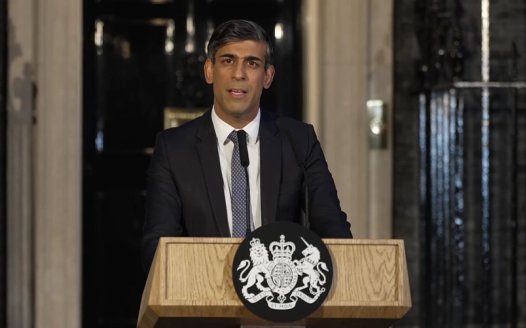Church to take over thousands of community schools
Posted: Thu, 4th Jul 2013
The Church of England has struck a deal with the Government that will allow it to take control of thousands of non-religious community schools.
Despite reassurances that the character of community schools will remain intact, with no change in religious education, admissions policies or employment terms for teachers, the National Secular Society has expressed grave doubts that this promise will be kept over the long-term.
Executive Director of the National Secular Society, Keith Porteous Wood, said that the move would inevitably lead to a further religionisation of the school system.
Speaking to The Times newspaper, Mr Porteous Wood said: "This will surreptitiously bring the education system under religious control. It will lead to the further alienation of school children who are from non-religious or religiously unconcerned families. Despite now being the majority, they are becoming increasingly disadvantaged in admissions and by the growing religionisation of publicly-funded schools."
Mr Wood said: "Once schools have been taken over by religious interests, it will be almost impossible to ever bring them back under community control."
Bishops will have the power to appoint governors at the schools.
At a seminar in Lambeth Palace, Education Secretary Michael Gove once more sang the praises of Church schools, ignoring the unjust admissions criteria and discriminatory employment practices in appointing teachers.
He said: "We would not have so many great state schools in this country without the Church of England. I know the Church does a wonderful job helping to raise educational standards and in providing a safe and loving environment for hundreds of thousands of children.
"However, there is much more we can do together. I want the Church to recover the spirit which infused its educational mission in Victorian times and support more new schools — especially academies and free schools — to bring educational excellence to the nation's poorest children."
Bishop John Pritchard, the Church's education leader, told The Times: "I think people may not realise the significance of what looks like a small technical change but actually allows the mutual support, the drawing together of resources, experiments in collaboration. It allows a whole lot more and it will enhance the educational experience of millions of children." Nothing could more clearly demonstrate the concerns the NSS has expressed.
He also predicted "steady, faster" growth in the number of church-led academy chains, especially among primary schools, and said that academy status would become "the norm" for church schools. The Church of England is already the biggest sponsor of academies, with 217 schools that converted to become academies and 50 church academies that replaced failing schools. There are 4,484 Church of England primary and middle schools, a quarter of the total, and 193 secondary schools.
Bishop Pritchard said that joining church-led groups of academies was the best way for small primary schools to secure their future.
Terry Sanderson, President of the National Secular Society, said: "The Church of England is rapidly changing its focus from its primary purpose — church worship — which has failed spectacularly with empty pews all over the country, to getting its message out in schools.
"Schools are the perfect platform for proselytising because children are bound by law to be there. Once inside a religious school, the law allows the Churches to teach children whatever it wants about religion and in any way it wants. The Church of England has made clear it intends to make its religious education far more evangelical in nature.
"This is not what schools are for, and yet Michael Gove blithely hands our nation's children over to religious interests so that they can be subjected to religious propaganda day after day. And what could be less appropriate in a society where Christian worship and belief has been rapidly declining for decades? The non-religious and religiously unconcerned majority are being betrayed by this Government, which is obsessed with "faith"."
Mr Sanderson said that if parents were uneasy with this new development it was up to them to organise and make their feelings known both to schools and, more importantly, politicians.







